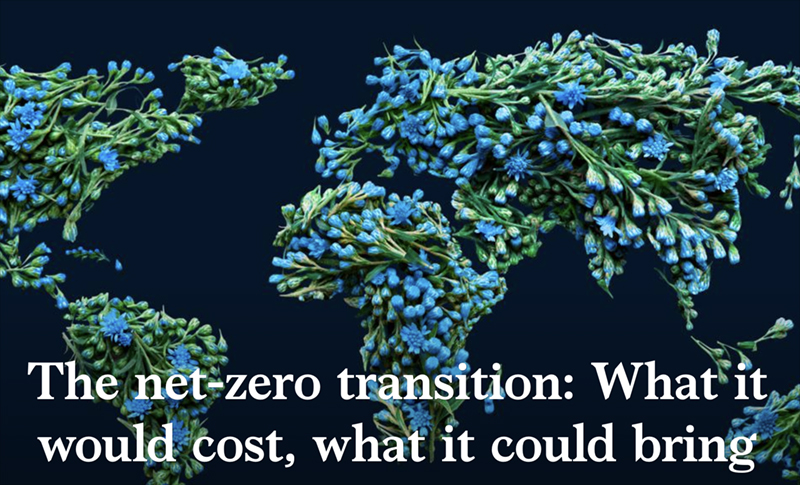Transitioning Cities: Achieving a Net-Zero Future for All
McKinsey Global Institute x NewCities
Transitioning Cities:
Achieving a Net-Zero Future for All

The urgent need for our transition to a net-zero economy puts cities on the front lines of physical and systemic transformation. Cities produce more than half of the world’s emissions: reducing these emissions would have a significant impact on the fight against climate change.
But as a new report from McKinsey Global Institute shows, reaching net-zero emissions isn’t easy and will require enormous economic and societal adjustments. What will this transition to net-zero look like, and who is paying for it? This conversation will explore what the net zero transition in cities will entail and how research, policy, and private sector innovation can help support and promote progress toward a healthy and sustainable future for all.
A few crucial components of the challenge before us emerged throughout the conversation:
Prioritizing Smart Investments
First, the importance of increasing and reallocating capital toward resilient solutions that offer multi-dimensional benefits will be imperative in the coming years. As cities and companies invest funds across the board, solutions that provide multiple mitigation, livability, equity, and other co- benefits must be prioritized; each dollar spent should hit multiple targets. Cities also need to capitalize on greening existing spending, for example slightly increasing the budget on maintenance costs to include efficiency retrofitting.
Collaborating on all levels
Second, achieving net-zero will require collaboration and cooperation across all levels of the economy and from all sectors. Because of the deeply interconnected nature of our systems, multi-sectoral mobilization is essential, and will require us to treat housing, transportation, land use, and the built environment as interdependent. If all partners are making net-zero commitments – lenders, equity investors, cities, and companies – it is in all stakeholders best interest to get everyone around the same table to unlock new opportunities.
Ensuring a Just Transition
Finally, the discussion highlighted the importance of centering equity throughout investment and decision-making for a net-zero future. Some countries, geographies, cities, and communities are at a far higher risk than others to bear the impacts of climate change, particularly in the Global South, where we see rapid urbanization happening. It is imperative that we ensure current investment is shifted toward geographies that are most affected first, and that we champion and scale financial models that support innovation and discourage capital flight in high risk areas.

Brodie Boland
Partner, McKinsey & Company

Alison Brizius
Commissioner, Environment Department, City of Boston

Tadashi Matsumoto
Head of Sustainable Urban Development, OECD

Alyssa Muto
Director, Sustainability and Mobility, City of San Diego

Andrew Snowhite [moderator]
Senior Strategy & Sustainability Advisor, NewCities
Or, if you prefer engaging with information in audio form, listen to this podcast with co-author of the report, Mekala Krishnan, as we dive into the technology and financing necessary for the transition.
“There’s a concern that we don’t have the technologies in place to get us to net-zero. However, if we look to a 2030 target, many of the technologies that we need to get to net-zero actually do exist. It may be less of an innovation problem alone, and more of a deployment problem.”
Mekala Krishnan, Partner at McKinsey & Company

